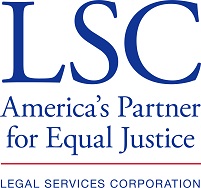Expunging ("Sealing") an Eviction
FIND COURT FORMS and MORE INFORMATION at: https://www.utcourts.gov/en/self-help/categories/housing/landlord/expunge.html
Q: How can I expunge, or in other words, erase an eviction from my records?
A: You erase an eviction by expunging it (also called “sealing”) so that it does not affect a future rental application or credit report. Only a district court judge can order the expungement of an eviction.
Q: Which past evictions can be expunged?
A: There are two types of expungement: discretionary and mandatory. Discretionary expungements are up to a judge to decide; mandatory expungements must meet certain criteria. Expungement is prohibited in some cases.
Q: When is expungement prohibited?
A: Expungement is prohibited in two circumstances.
(1) “If the judgment for the eviction has not been satisfied.” This usually means that if the landlord was awarded a money judgment and that debt has not been paid (or compromised by agreement between the parties), a judge cannot expunge the eviction. If a money judgment was entered, the filing of a Satisfaction of Judgment is key.
(2) An eviction following a “no cause” notice or for nonpayment of rent cannot be expunged if the landlord objects to the expungement. But if the tenant files a motion to expunge after paying off any money judgment in either type of case and a Satisfaction of Judgment is filed with the court and the landlord does not object within 60 days then the court must expunge the eviction. This rules applies after 7/1/22 no matter when the “no cause” or nonpayment case was filed.
Q: Which expungements are discretionary?
A: For evictions filed before 7/1/22, a judge may seal an eviction case if both parties (landlord and tenant) agree. A Motion to Seal must be filed along with a request asking for the judge’s decision (“Request to Submit”) and a proposed Order of Expungement. But the decision to expunge or not is entirely up to the judge.
Q: Which expungements are mandatory?
A: Mandatory expungement occurs in two circumstances.
(1) Evictions filed after 7/1/22 will be automatically expunged three (3) years later if the case was dismissed or the parties (landlord and tenant) agree in writing to the expungement. Civil actions – which include evictions – are usually dismissed by the court after several months if the defendant is never served, if the plaintiff does not seek a default judgment, or if the defendant files an Answer but the plaintiff never prosecutes (“goes forward with”) the case. Whether an eviction is dismissed or the parties agree to expungement, three years must elapse after the date the landlord first filed the case.
(2) In “no cause” and nonpayment cases, once the tenant pays off any judgment and a Satisfaction of Judgment is filed, the tenant can ask the court to expunge it. If the landlord does not object within 60 days, the judge must grant the expungement. Mandatory expungement cannot occur before 7/1/22 but the filing date does not matter.
Q: Can I have an old eviction case expunged?
A: Maybe. Success depends on the status of the case. If a money judgment has been paid and a Satisfaction of Judgment is on file and the landlord agrees, a judge may expunge it. Many judges refuse to expunge evictions even when both parties agree to the expungement.
The new law does not explicitly provide for expungement of evictions based on tenancies at will, criminal activity, nuisance or other reasons (such as unauthorized tenant or animal, subletting or breach of lease). Judges often will not expunge evictions based on these allegations. But the law does not prohibit expungement.
In some cases an Order of Restitution (the eviction order) has been entered but no money judgment. Landlords and their attorneys often wait many months – sometimes years - before pursuing a money judgment. (See our “Eviction Part 2 – Money Judgment” information.) When neither a dismissal nor a money judgment is entered by the court, the case is still pending; expungement is very unlikely.
Even when a case is dismissed by the court on its own (called sua sponte), the case is dismissed “without prejudice” which means it could be refiled (reactivated). A judge may be reluctant to expunge such a case without the landlord’s explicit consent.
Q: What happens after an eviction is expunged?
A: Evictions are public records. Public records are searchable by landlords and creditors. Once an eviction is expunged it no longer exists in public records. However, the 2022 law requires a state agency to maintain a list of expunged evictions. Once an eviction appears on this expunged evictions list, public agencies cannot use expunged evictions for any purpose. Private entities such as screening services must delete expunged evictions from their records and cannot use expunged evictions for any purpose.
The law’s prohibition against the use of expunged records does not apply to individual landlords. So owners of large complexes or multiple properties are not affected. These landlords may still use old eviction filings to deny a prospective tenant’s application.
Q: If my eviction has been expunged, can I say I was never evicted?
A: YES. “The individual for whom the eviction is expunged may reply to an inquiry on the matter as though there was never an eviction.” (Utah Code §78B-6-854(3)(b) effective 7/1/22)
Utah Legal Services receives many calls about eviction cases preventing approval of a rental application. We cannot assist most callers. We can provide pro se (“do it yourself”) forms. One difficulty is getting the (old) landlord to agree to the expungement. If the landlord will not agree, the chance a judge will expunge is very small. The court may charge a fee for filing a petition to expunge. You can file a form asking the judge to waive the fee.

